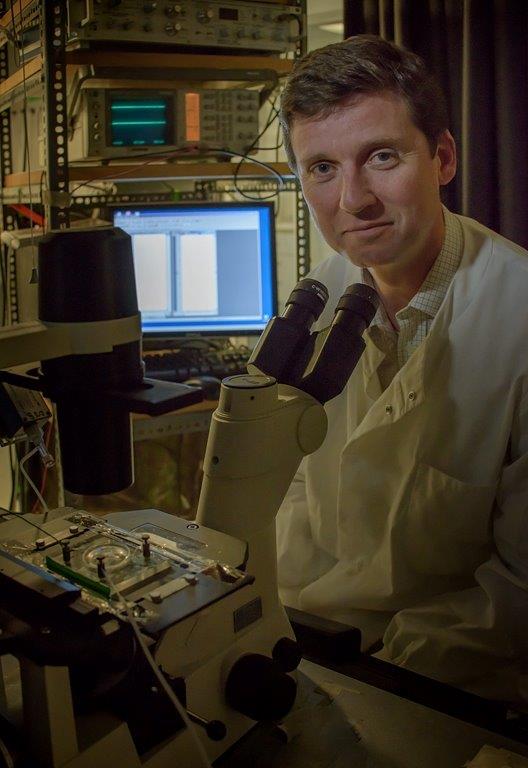Scientists from the University of Leeds have discovered a gene that plays a vital role in blood vessel formation, research which adds to our knowledge of how early life develops. The discovery could also lead to greater understanding of how to treat cardiovascular diseases and cancer.
Professor David Beech (pictured) of the School of Medicine at the University of Leeds, who led the research, said: “Blood vessel networks are not already pre-constructed but emerge rather like a river system. Vessels do not develop until the blood is already flowing and they are created in response to the amount of flow. This gene, Piezo1, provides the instructions for sensors that tell the body that blood is flowing correctly and gives the signal to form new vessel structures.
“The gene gives instructions to a protein which forms channels that open in response to mechanical strain from blood flow, allowing tiny electrical charges to enter cells and trigger the changes needed for new vessels to be built.”
The research team is planning to study the effects of manipulating the gene on cancers, which require a blood supply to grow, as well as in heart diseases such as atherosclerosis, where plaques form in parts of blood vessels with disturbed blood flow.
Professor Beech added: “This work provides fundamental understanding of how complex life begins and opens new possibilities for treatment of health problems such as cardiovascular disease and cancer, where changes in blood flow are common and often unwanted.
“We need to do further research into how this gene can be manipulated to treat these diseases. We are in the early stages of this research, but these findings are promising.”
Professor Jeremy Pearson, Associate Medical Director at the British Heart Foundation, which part-funded the research, said: "Blood flow has a major effect on the health of the arteries it passes through. Arteries are more likely to become diseased in areas where the flow is disturbed, for example. This is because the endothelial cells lining the arteries are exquisitely sensitive to this flow and their response to changes can lead to disease, where the artery becomes narrowed and can eventually cause a heart attack.
Prof Pearson goes on to say, "Until now, very little has been known about the process by which blood flow affects endothelial cells.Through further research, using this knowledge, we hope to see whether a treatment can be developed that targets this process to prevent the development of disease in healthy arteries."
The research was also funded by the Medical Research Council and the Wellcome Trust and will be published in the journal Nature.








